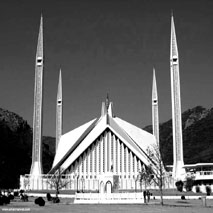Gloomy picture of pre-Islam Arabian Peninsula
BEFORE the advent of Islam, the political, social, economic and religious conditions of Arabs were so pathetic.
Politically, the Arabian community was deeply polarized; there was no system of governance and” might is right” was the decisive factor in various feuds encountered by the inhabitants of Arabian Peninsula.
No part of the Arabian Peninsula had any government at any time, and the Arabs never acknowledged any authority other than the authority of the chiefs of their tribes.
The authority of the tribal chiefs, however, rested, in most cases, on their character and personality, and was moral rather than political. The only law of the land was lawlessness.
In the event, a crime was committed; the injured party took law in its own hands, and tried to administer “justice” to the offender. This system led very frequently to acts of horrendous cruelty.
Since Arabia did not have a government, and since the Arabs were anarchists by instinct, they were locked up in ceaseless warfare.
War was a permanent institution of the Arabian society. While commenting on conditions of Arabs before the advent of Islam, a famous historian G. E.
Grunebaum remarked: “In the century before the rise of Islam the tribes dissipated all their energies in tribal guerrilla fighting, all against all.” (Classical Islam – A History 600-1258 – 1970)
Socially, the divisions on the basis of race, religion and economic status were the permanent and inseparable part of the Arabian society.
Slavery was normal and was condoned by all members of society without any reservation. Furthermore, Arabia was a male-dominated society.
Women had no status of any kind other than as sex objects. The number of women a man could marry was not fixed.
When a man died, his son “inherited” all his wives except his own mother. A savage custom of the Arabs was the female infanticide.
Even if an Arab did not wish to bury his daughter alive, he still had to uphold this “honorable” tradition, being unable to resist social pressures. Drunkenness was a common vice of the Arabs. With drunkenness went their gambling.
They were compulsive drinkers and compulsive gamblers. The relations of the sexes were extremely loose.
Many women sold sex to make their living since there was little else they could do. These women flew flags on their houses, and were called “ladies of the flags” (dhat-er-rayyat).
Economically, the Jews were the leaders of Arabia. They were the owners of the best arable lands in Hijaz, and they were the best farmers in the country.
They were also the entrepreneurs of such industries as existed in Arabia in those days, and they enjoyed a monopoly of the armaments industry.
Slavery was an economic institution of the Arabs. Male and female slaves were sold and bought like animals, and they formed the most depressed class of the Arabian society.
The most powerful class of the Arabs was made up by the capitalists and money-lenders. The rates of interest which they charged on loans were exorbitant, and were especially designed to make them richer and richer and the borrowers poorer and poorer.
The most important urban centres of Arabia were Makkah and Yathrib, both in Hijaz. The citizens of Makkah were mostly merchants, traders and money-lenders.
Their caravans travelled in summer to Syria and in winter to Yemen. They also travelled to Bahrain in the east and to Iraq in the northeast.
The caravan trade was basic to the economy of Makkah, and its organization called for considerable skill, experience and ability.
R V C Bodley, a celebrated author comments about pre-Islam economic conditions of Arabs in following words “The arrivals and departures of caravans were important events in the lives of the Meccans.
Almost everyone in Mecca had some kind of investment in the fortunes of the thousands of camels, the hundreds of men, horses and donkeys which went out with hides, raisins and silver bars, and came back with oils, perfumes and manufactured goods from Syria, Egypt and Persia, and with spices and gold from the south. (The Messenger, 1946, p. 31)
Religiously, Arabs were idolaters.
They used to idolize multiple gods. They had turned the Kaaba in Makkah, which according to traditions, had been built by Prophet Abraham and his son, Ismael, and was dedicated by them to the service of One God, into a heathen pantheon housing 360 idols of stone and wood.
Apart from idol-worshippers, there were also atheist and zindiqs. Jews were also in great numbers in Arabian Peninsula.
When the Romans destroyed Jerusalem in A.D. 70, and drove the Jews out of Palestine and Syria, many of them found new homes in Hijaz in Arabia.
We also find the mention of the presence of Christians in some parts of Arabian Peninsula.
In the light of preceding discussion, it can safely be concluded that Arabian peninsula, before the arrival of Islam was in utter darkness, politically, socially and economically.
It was only the light of Islam that transformed the Arabian community into an exemplary state of Madinah, premised on just and refined principles of socio-economic justice and monotheism.










